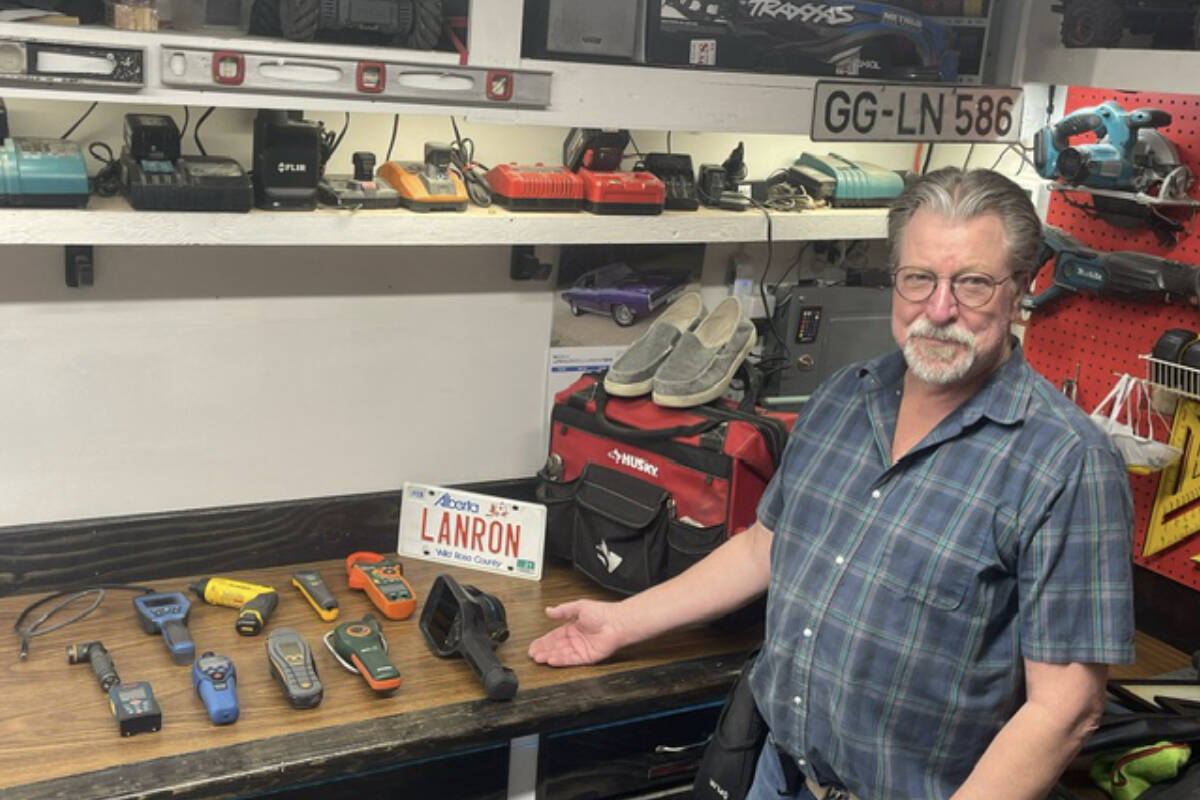Golf balls for the tool kit? Red Deer home inspector shares why

Veteran home inspector shares a behind-the-scenes look into his craft
When Ron McDougall approaches any home or new building, his goal is simple: ensure the building meets Alberta safety standards and in the case of prospective homeowners, help them feel confident in their home-buying decision.
In both cases, an informed assessment, based on industry expertise and accumulated knowledge lets all residents feel safe and comfortable in their homes.
How does he do it?
Like many experienced home inspectors, Ron, founder of Lanron Inspections, has a variety of tools at his disposal, whether he’s looking for signs of unwanted moisture or electrical issues. But he also has a few “tricks of the trade” picked up over the thousands of inspections completed in his 17 years in the field.
“I take a lot of pride in doing inspections. My interest in home inspections began when I was a contractor. During that time, I had seen some pretty bad workmanship and thought it would be nice to protect people from getting caught up in a money pit,” McDougall says.
Here’s a look at four inspection techniques Ron often calls upon to verify the quality of a build … and if you see him with golf balls, it’s all part of the toolkit!
Golf balls: Ideally, concrete surfaces have no hollow areas beneath them, but voids due to settling can create cracking and unlevel concrete . Bouncing a golf ball helps inspectors identify areas with different sounds or feels, signaling potential voids that may lead to future cracking or settling.
Smoke testing: Smoke testing involves introducing non-toxic smoke into furnace heat exchangers to detect leaks or cracks, it also helps with finding draughty areas.
Thermal imaging cameras: Thermal imaging cameras can detect temperature variations on surfaces, helping inspectors identify issues such as heat loss, insulation deficiencies and HVAC system malfunctions. As a Level 2 thermologist, Ron can precisely determine which areas of a home or building are cooler than others and advise how to mitigate those colder temperatures.
Moisture meters: Moisture meters measure the moisture content in various materials such as wood, drywall and concrete, helping inspectors detect hidden leaks, water damage and potential mould growth.
Learn more about tools of the property inspection trade at lanron.ca, or call 403-870-3081 to speak with Ron directly and book your home or building inspection.
